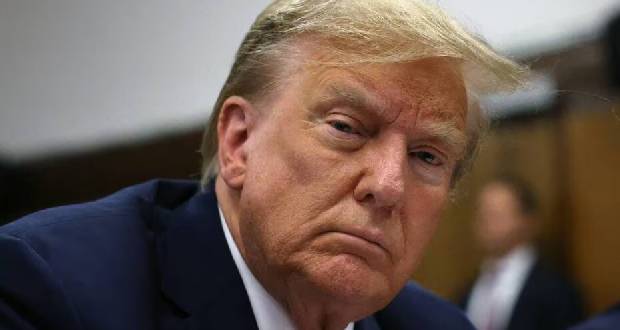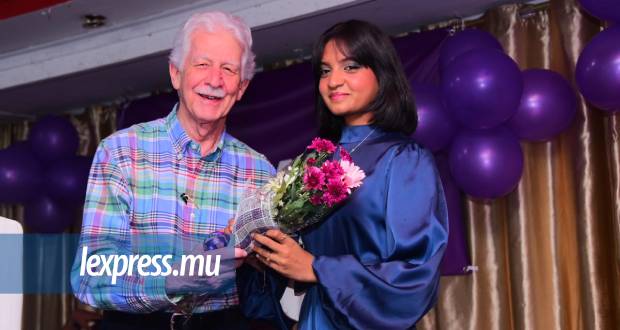Publicité
Post-elections: A resurgence of identity politics
Par
Partager cet article
Post-elections: A resurgence of identity politics

Fifty years after independence, Mauritius demonstrates an undeniable success in forging a pluralistic nation, where multiple ethnic and religious groups co-existed peacefully and shared the fruits of economic progress. However, serious fissures do become apparent on occasion, and the last general elections have once more displayed sharpened communal and other socio-political cleavages.
There is even a growing apprehension that identity has become the basis for a more polarised political configuration, with nefarious consequences for the country’s long term stability. The continued and persistent emphasis on communal and religious identities, the proliferation of diverse religious sects and écoles de pensée, and widespread proselytization, have fuelled the forces of societal fragmentation.
In addition, governance failures have heightened perceptions of discrimination, exclusion and injustice, along with rising disparities in economic opportunity and equality. All this is contributing to a dangerous intensification of identity politics.

during their respective rallies on November 3. Once more, the recent general
elections have displayed sharpened communal cleavages, according to the author.
A seemingly paradoxical feature of identity politics is that the persons subsumed under each particular identity are far from homogenous, reflecting various intra-religious affiliations or intra-cultural distinctions, and different economic and social strata. What is relevant for identity politics is the degree to which every group imagines and perceives the other group as a threat and enemy to the furtherance of its interests.
Many proponents of identity politics from the minority communities argue that the Mauritian socio-economic system is biased towards the majority community to their detriment. The word majority is a misnomer, and in fact stands for the largest single minority group. A constant grievance is that the lesser minorities get a far lesser share of the advantages of public patronage and clientelism, especially as regards employment in the public sector.
The need for official and explicit affirmative action for the minorities has gained deeper attention. Political parties with greater support from the minorities have increasingly shifted their focus to a reflection of such grievances rather than championing a fair, impartial and meritocratic system.
The political system has become more polarised as minorities demand greater social justice in the narrow terms of community socio-economic uplift, while the majority ethnic group claims that its hold on public resources is not excessive, especially in view of the domination of the private sector by a handful of family oligarchies.
The evolution of the politico-communal landscape should be viewed in the light of renewed efforts to change the order of things for enhanced economic and social mobility. A largely partisan press has amplified the ethos for change. Official or self-proclaimed representatives of all religions have joined the fray to impart a more radical turn to the political debate. Affirmative action has received revived emphasis as a means to reassert minority rights and redress socio economic injustice.
The country’s intelligentsia failed miserably in providing the scope for a sane, decent and rational conversation on the country’s widening disparities, and opted to watch passively on the sidelines at growing ethnic radicalisation. There is, for example, a notable failure of ideas on how to effectively ensure a level playing field in public sector recruitment and other benefits, or how to safeguard the independent and proper governance of key institutions, including law enforcement and various regulatory bodies. The private sector is not immune from criticisms of its governance and commitment to diversity and social responsibility, although to a far lesser degree.
The division of voters on sectarian lines therefore could only be a natural consequence of this new hardening of identity politics, centred around the protection and rescue of minorities from further domination, exploitation and suppression by the majority. Without an open and constructive exchange to address these issues, and in the absence of meaningful reforms for offering truly equal opportunities to every citizen, it is easier to take refuge in the realm of identities and support group vested interests, rather than consider alternative ideas, plans and actions to ensure greater justice and equality for all.
To its credit, the ruling Government sought to tackle social and economic injustice with generous spending for all categories of the population, by raising old age pensions, the minimum wage and worker after-tax income. However, the relatively wide inequities have remained broadly unchanged for minority groups, and the proposed hike in public sector pay may even have reinforced the perception of unfair treatment between public and private sector employees.
The futile presentation of legislation on proportional representation and the accompanying debate in the national assembly only served to harden majority/ minority positions on the need for improving the fairness of the electoral system. Heightened ethnic tensions provided the backdrop against which the recent elections were held. The majority community, especially in the rural areas, felt that there might be a ganging-up of the minorities, largely supporting the MMM and the Labour-PMSD alliance, to wrest power from the Hindus. The MSM, true to its nature, did its part in amplifying ethnic fears, bolstered by an outrageous manipulation of the state-owned MBC TV.
The last public gathering of the MMM attracted a record crowd, in such impressive numbers as to point to an inevitable accession to power, on its own or in a post electoral alliance. A prominent member of a Hindu socio-cultural organization concocted a devious and dangerous distortion of certain remarks of the Labour Party’s leader in the last week of the campaign, which were presented as insulting to the Hindus. Another prominent member of the Labour Party conducted a strident anti-Modi campaign to buttress his credentials as a Muslim candidate.
These developments on election eve contributed to the rallying of a majority of Hindus to the MSM in fear of losing or having to share power with minorities. In addition, both the MMM and the Labour Party share the blame for failing to comfort the Hindus that their agenda was not minority-driven to squeeze Hindus out of power.
Only a few years ago, the PMSD had asserted that Hindus were no longer the largest single group, and called for a new communal census. Its leader was ready to stake a claim as the next Prime Minister.
The Labour Party’s leader was weighed down by a battery of often despicable attacks to discredit him, and was gauged to be too dependent on the overwhelming support of a minority group.
The MMM’s choice of candidates for the top constitutional posts was in line with its tradition of scientific communalism, figuring lightweight Hindus in less important positions, while minorities were proposed as President, Prime Minister, Minister of Finance and Speaker of the National Assembly.
All political parties resorted to identity politics instead of proposing systemic reforms and inclusive policies for a fairer and sustainable sharing of the fruits of progress, for better-governed and truly independent institutions that serve all citizens, and for greater meritocracy that no longer favours cronies and sectarian groups over the rest of society.
Identity politics has made deeper inroads in the Mauritian psyche and altered the terms of the current political discourse. The MSM victory was thus consolidated by the pursuit of identity politics to its logical extreme, through the exhortations of some leaders of the creole community for a purely communal vote across all parties irrespective of any other considerations.
This rabidly fanatical, but ultimately suicidal, strategy was not embraced without strong financial inducements, better known as money politics. Money, lots of money, flowed to influence voters. The deliberate lack of campaign finance reforms is turning our electoral exercise into a caricatural expression of democracy.
Identity politics is the syndrome by which people’s beliefs and interests are in large part determined by their identification to specific groups, and whereby individuals are not valued separately from their group identities. It is a proven and familiar enemy of human progress, as the pitting of group against group is at most a zero-sum game, and eventually leads to regressive outcomes.
While we may be dealing with the same dirty old tricks of traditional politics, we also have to contend with new forms that are more insidious and divisive, rendering our society more fragile. For instance, when plain identity politics is dressed in moral and ethical overtones to stoke fears of the majority or resentments of minorities. We need to get past the rhetoric of insecurity and of victimisation, or else our society will polarise to a point of no return.
But, there are signs of hope. The younger generation will not accept to stay much longer on this self-destructive path and will chart new directions for freeing their multiple identities. Another positive sign is the lack of public rejoicing upon the announcement of the election results. The singular advent of a minority Government representing only 2 out of every 5 voters, and the glaring polarization, reminiscent of the deeply communal 1967 elections, were indeed sobering.
The widespread consternation, especially among young voters, will hopefully lead to a progressive rejection of identity politics, and a closer adherence to a universal humanistic vision – that any individual’s progress and development should be determined on grounds of personal ability, temperament and character.
Publicité
Les plus récents






